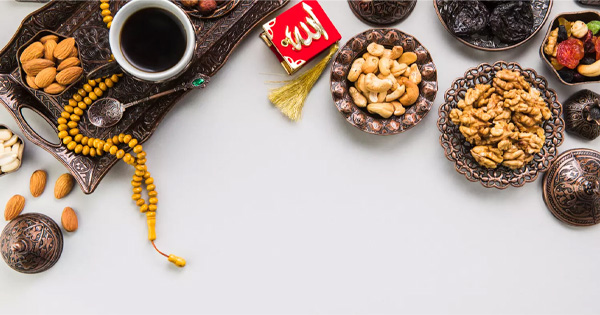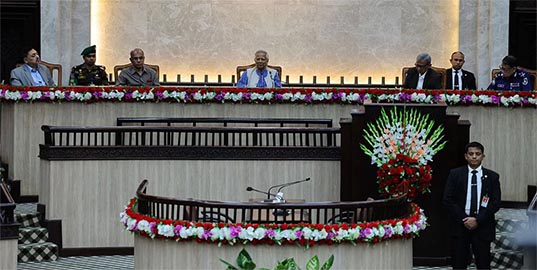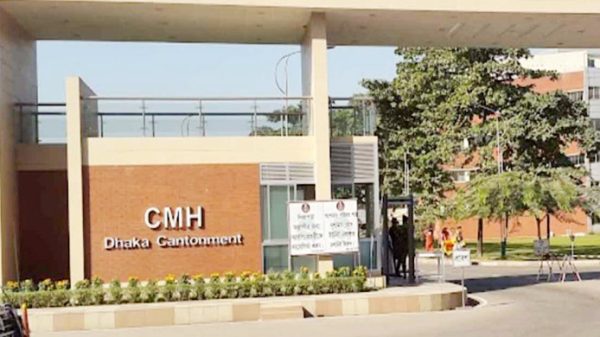Reasons Why Ramadan Fasting is More Beneficial Than Dieting

- Update Time : Thursday, 14 March, 2024, 02:19 pm
- 94 Time View

Online Desk: In pursuing a healthier lifestyle, the choice between Ramadan fasting and traditional dieting holds significance. Both practices impact health and eating habits, but which one emerges as the more beneficial option? Let’s embark on a journey exploring the nuances of these two approaches and their impact on well-being.
Holistic Detoxification
Ramadan fasting goes beyond the typical notion of dieting for weight loss. It involves a unique detoxification process where the body undergoes a thorough internal cleansing. The fasting period allows organs to rest and rejuvenate which promotes optimal functioning and contributes to overall health.
Mindful Eating and Discipline
Unlike conventional dieting, which solely focuses on restricting calories, Ramadan fasting instils a sense of discipline and mindfulness in eating habits. The structured nature of fasting encourages individuals to be more aware of what and how much they consume. Thus, Ramadan fosters a healthier relationship with food in the long run.
Spiritual and Emotional Well-being
Ramadan fasting is more than just a physical practice; it is deeply rooted in spirituality. The act of fasting is not only an exercise for the body but also for the mind and soul. This spiritual dimension contributes to emotional well-being and enhances a sense of inner peace, gratitude, and resilience.
Community Support and Bonding
One of the distinctive aspects of Ramadan fasting is its communal nature. Individuals come together to fast and create a supportive environment beyond personal discipline. This sense of community support and bonding provides emotional strength and motivation, elements often lacking in individualistic dieting journeys.
Sustainable Lifestyle Changes
Month-long fasting during the holy Ramadan encourages a holistic approach to health that extends beyond the month of fasting. The discipline and mindful eating habits cultivated during Ramadan can translate into sustainable lifestyle changes. This helps individuals maintain a balanced and health-conscious approach to nutrition throughout the year.
Balanced Nutritional Intake
While dieting may sometimes lead to nutrient imbalances or deficiencies, Ramadan fasting emphasises a balanced nutritional intake. The pre-dawn and post-sunset meals, suhoor and iftar, are carefully planned to include a variety of food groups which ensures that the body receives essential nutrients.
Improved Digestion
The intermittent fasting pattern during Ramadan allows the digestive system to rest and function more efficiently. This can lead to improved digestion, absorption of nutrients, and a reduction in digestive issues, contributing to better health.
Controls Blood Sugar
During Ramadan fasting, insulin sensitivity can improve, lowering the risk of type 2 diabetes. When cells become unresponsive to insulin, insulin resistance can develop – a precursor to diabetes. Fasting prompts the body to use stored glucose for energy, reduces glucose levels, and enhances insulin sensitivity.
Promotes Weight Loss
Fasting aids weight loss by regulating portion sizes and cutting calorie intake. However, it is crucial to avoid overeating after fasting periods to maintain progress. Sustaining healthy eating habits and exercise during non-fasting hours is vital for lasting weight loss. Ramadan fasting offers a chance to reset eating patterns and foster healthier food relationships.
Good for Cardiac Health
Ramadan fasting positively affects heart health by decreasing blood pressure and cholesterol, reducing inflammation, and enhancing blood circulation. This minimises the risk of heart disease and stroke. Those with existing heart conditions should seek medical advice before fasting, ensuring it aligns with their health needs.
Improves Brain Function
Ramadan fasting boosts cognitive performance and brain function notably by elevating the production of brain-derived neurotrophic factor. This protein fosters brain cell growth and survival, heightening memory, learning, and mental clarity.
Increases Growth Hormone Secretion
During Ramadan fasting, the body’s growth hormone secretion is naturally enhanced. Research indicates that fasting increases human growth hormone (HGH) levels. This hormonal surge supports metabolism, aids weight loss, and promotes muscle growth, contributing to health benefits during the fasting period.
Could Extend Longevity
Examining periodic fasting’s impact on the human gut, a study observed an increased diversity of beneficial gut bacteria, notably Christensenella species linked to longevity. Additionally, researchers identified heightened sirtuin levels, proteins crucial for metabolic regulation and longevity. Further research is essential to grasp fasting’s longevity effects and identify optimal fasting protocols.
Reducing Cancer Risk
The American Cancer Society Journal suggests intermittent fasting could aid cancer treatment and prevention by reducing tumour growth and chemotherapy toxicity in certain cases. However, they stress the necessity for more robust clinical trials and advise cancer patients to undertake intermittent fasting within clinical settings. Further research is imperative to comprehensively understand fasting’s impact on cancer.
Balancing Nutrients in Suhoor
Try to choose nutrient-rich and fibre-packed foods for the pre-dawn meal (suhoor), such as whole grains (like oats, whole wheat bread, and quinoa), lean proteins, legumes, fruits, vegetables, healthy fats from nuts and seeds, and low-fat dairy or plant-based alternatives. These options offer sustained fullness and assist in controlling blood sugar levels by delaying its release. Also, stay adequately hydrated throughout the non-fasting period to prevent dehydration.
Mindful Choices for Iftar
It is crucial to break the fast with nutrient-rich foods. Start with a couple of dates and water or milk as they provide natural sugars for energy and minerals to replenish the body.
Follow with a balanced meal containing complex carbohydrates like brown rice or whole wheat bread, lean proteins such as chicken or lentils, and plenty of vegetables. Soups and stews are also ideal choices as they are hydrating and packed with nutrients.
Foods to Avoid
It is advisable to steer clear of deep-fried items, sugary snacks, and heavily processed foods as they may lead to discomfort, sluggishness, and blood sugar fluctuations. Hydration is paramount, so it is important to ensure adequate intake of water and unsweetened beverages like herbal teas or fruit-infused waters outside fasting periods.
Portion Control
While it is tempting to indulge during iftar, practising portion control is key. Small, well-balanced meals help prevent overeating and promote better digestion. Listen to your body’s hunger cues and avoid excessive consumption.
Verdict
Month-long fasting during the holy month of Ramadan emerges as more beneficial, offering a holistic approach that addresses physical and spiritual well-being. While dieting focuses on weight management, it lacks the depth and inclusivity that Ramadan fasting involves.
















